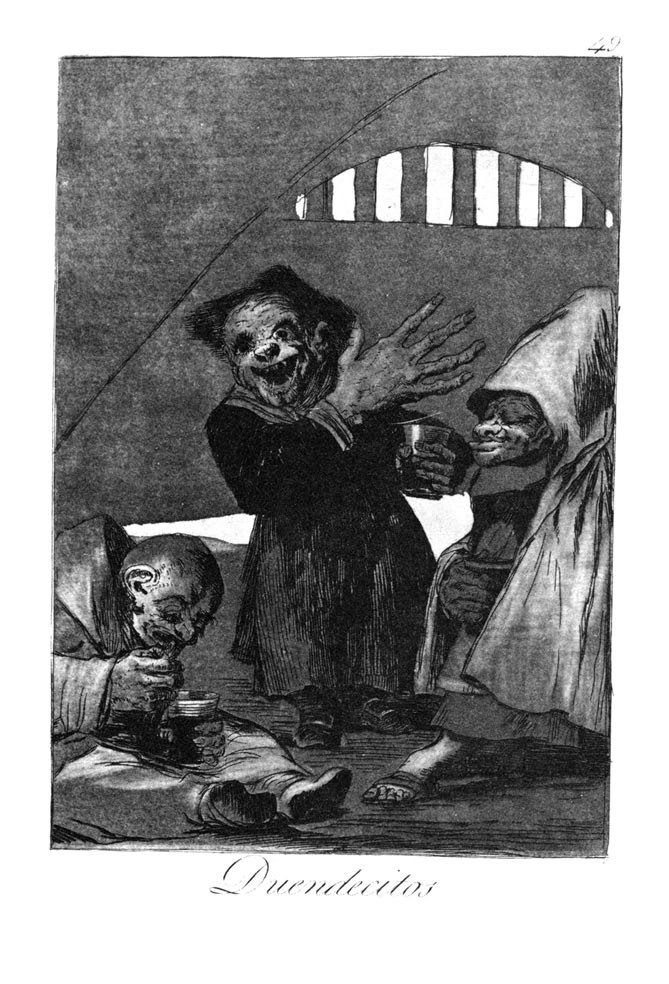Duende
Duendecitos, from Francisco Goya’s Caprichos
Hello!
This week, I wanted to write a little about the Duende in Dada Duende.
I came across the word while looking up symbolism and special emotions related to Flamenco dance and music after stumbling upon a video of a young flamenco dance student on youtube a couple of years ago.
Her name is Irene Olvera and what I stumbled on was the first video clip ever posted of her dancing. So, so powerful. She has since posted many videos and I have followed her dancing ever since seeing the first video.
I have always loved Flamenco dance and guitar playing and I thought there must be a special feeling associated with it the way Saudade is associated with Bossa Nova.
I did a little research and found out that Federico Garcia Lorca had written an essay called “Theory and Play of The Duende”. It was actually an edited and expanded lecture that he had given in defense of the cultural significance of Flamenco music and dance and, more broadly, certain folk art in Buenos Aires in 1933. It seems at the time in Spain there was a desire among the cultural elites to hide the more earthy roots of Spanish arts as an attempt to put a more modern face on their culture. I think Lorca was offended by this and he describes a whole different creative source in flamenco: Duende. Duende opposed to the inspiration of the Muse or the Angel.
Here is a quote:
“Angel and Muse come from outside us; the Angel brings a light, and the Muse gives a form (Hesiod learned from her). Metal leaf or folds of the tunic, it is her norm that the poet receives in his laurel grove. However, the Duende has to be aroused from the furthest corners of the blood.”
You can download or read the essay in translation here:
It’s a powerful essay and it is a romantic take on the origin of the deep, dreadful, and beautiful emotions that certain artists can stir in us.
One more quote:
Dark sounds. The countryman of Spain said, agreeing with Goethe who in speaking of Paganini hit on the definition of the Duende: A mysterious force that everyone feels and no philosopher has explained.
The Duende is depicted as a mischievous imp or elf and makes appearances in the folklore of Spanish and many Latin American cultures.
I wanted to use the concept in the name of our record club but I attached Dada to it to lighten it up a little with nonsense, so we wouldn’t be expected to battle with darkness and death with every issue. :-)
I love you!
Chris

